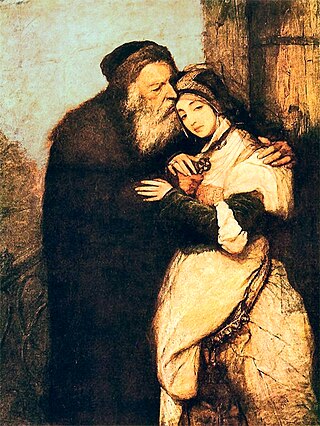Mallory is an English surname. Spelling variants include Mallary, Mallery, Malorie, Mallorie, Mallerie and Mallorey. Mallory and Mallerie are also given names derived from the surname.
Mallory is an English surname. Spelling variants include Mallary, Mallery, Malorie, Mallorie, Mallerie and Mallorey. Mallory and Mallerie are also given names derived from the surname.
Malone is an Irish surname. From the Irish "Mael Eóin", the name means a servant or a disciple of Saint John.
Amy is an English feminine given name, the English version of the French Aimée, which means beloved. It was used as a diminutive of the Latin name Amata, a name derived from the passive participle of amare, “to love”. The name has been in use in the Anglosphere since the Middle Ages. It was among the 50 most popular names for girls in England between 1538 and 1700. It was popularized in the 19th century in the Anglosphere by a character in Sir Walter Scott's 1821 novel Kenilworth, which was based on the story of Amy Robsart. Enslaved Black women in the United States prior to the American Civil War were more likely to bear the name than white American women because slave masters often chose their names from literary sources. The name declined in use after 1880 but was revived due to the hit song Once in Love with Amy from the 1948 Broadway musical Where's Charley?. The name peaked in usage in the United States between 1973 and 1976, when it was among the five most popular names for American girls. It remained among the top 250 names for American girls in the early 2020s.
Costello is a surname of Irish origin, which has been used as a stage name by Italians and others.
Flynn is an Irish surname or first name, an anglicised form of the Irish Ó Floinn or possibly Mac Floinn, meaning "descendant or son of Flann". The name is more commonly used as a surname rather than a first name.
Elvira is a female given name. First recorded in medieval Spain, it is likely of Germanic (Gothic) origin.
Madison is a surname of English origin that has become a popular given name in the United States. Madison, also spelled Maddison, is a variant of Mathieson, meaning son of Matthew. A different origin is alleged by some where Maddy is assumed to be the pet form of Maud and therefore the meaning is son of Maude.

Jessica is a female given name.
The name Moira, sometimes spelled Moyra, is an Anglicisation of the Irish name Máire, the Irish equivalent of Mary. Transliterated with Greek letters Μοίρα is the Greek word for Destiny, i.e. the three Fates.
Pierce is an English, Welsh, and Irish surname. The name is a cognate of French Pierre ('Peter'). Notable people with that surname include:
Meredith is a Welsh given name, and a surname common in parts of Wales. As a personal name, it was historically usually given to boys, but it has more recently been given mainly to girls. Meredith has many derivatives that have also become personal names and surnames.
Stark and Starke are German and English surnames; in the German language stark means "strong" or "powerful". Notable people with the surname include:
Leila is a feminine given name primarily found in the Middle East, particularly in Semitic speaking countries and Iran. In the Latin alphabet, the name is commonly spelled in multiple ways, including Leila, Layla, Laylah, Laila, Leyla and Leylah.

Stephanie is a female name that comes from the Greek name Στέφανος (Stephanos) meaning "crown, wreath, garland". The male form is Stephen. Forms of Stephanie in other languages include the German "Stefanie", the Italian, Czech, Polish, and Russian "Stefania", the Portuguese Estefânia, and the Spanish Estefanía. The form Stéphanie is from the French language, but Stephanie is now widely used both in English- and Spanish-speaking cultures.
Sylvia is a feminine given name of Latin origin, also spelled Silvia. The French form is Sylvie. The name originates from the Latin word for forest Silva and its meaning is spirit of the wood. The mythological god of the forest was associated with the figure of Silvanus.
The given name Lisa can be a short form of Elisabeth, Melissa or Elizabeth. In the United Kingdom, the name Lisa began to gain popularity during the 1960s, by 1974 it was the fifth most popular female name there, and a decade later it was the 14th most popular female name there. However, by 1996 it had fallen out of the top 100. Similarly, in the US it was the most popular female name for most of the 1960s and in the top 10 through most of the 1970s before falling.
Kelly is a given name of Irish origins, derived from the Irish surname Kelly. As a name of Irish origin, the Kelly surname is partially an anglicised version of older Irish names, especially Ó Ceallaigh, though the name Kelly is also present to a lesser extent in other Celtic cultures. Kelly is historically a male-only name, but has been used as a female given name since the 1960s, though with a significant minority usage as a masculine name, especially within Celtic families.
Finch is an English surname. Finch was also the surname of the Earls of Winchilsea and Nottingham and Earls of Aylesford.
Nadine is a female given name. It is a French elaboration of the name Nadia, itself being a pet form of the Russian virtue name Nadezhda. It is also commonly used amongst Arabic communities and may mean in Arabic: نادين, romanized: nādīn, lit. 'Admonitory/Messenger, Showerer of blessings'.
Carol is a unisex given name in English, although in contemporary usage it is more commonly used for women. It is a variant of the English Charles, the German Carl, and the Latin Carolus. Spelling variations include Carole. People named Carol include:
Celeste or Céleste is a given name or surname which derives from the Latin caelestis, meaning heavenly or celestial.